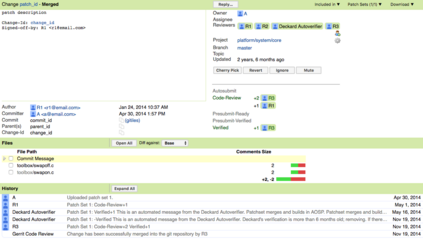Modern Code Review (MCR) plays a key role in software quality practices. In MCR process, a new patch (i.e., a set of code changes) is encouraged to be examined by reviewers in order to identify weaknesses in source code prior to an integration into main software repositories. To mitigate the risk of having future defects, prior work suggests that MCR should be performed with sufficient review participation. Indeed, recent work shows that a low number of participated reviewers is associated with poor software quality. However, there is a likely case that a new patch still suffers from poor review participation even though reviewers were invited. Hence, in this paper, we set out to investigate the factors that are associated with the participation decision of an invited reviewer. Through a case study of 230,090 patches spread across the Android, LibreOffice, OpenStack and Qt systems, we find that (1) 16%-66% of patches have at least one invited reviewer who did not respond to the review invitation; (2) human factors play an important role in predicting whether or not an invited reviewer will participate in a review; (3) a review participation rate of an invited reviewers and code authoring experience of an invited reviewer are highly associated with the participation decision of an invited reviewer. These results can help practitioners better understand about how human factors associate with the participation decision of reviewers and serve as guidelines for inviting reviewers, leading to a better inviting decision and a better reviewer participation.
翻译:现代代码审查(MCR)在软件质量做法中发挥着关键作用。在管理、审查和审查过程中,鼓励审查者审查一个新的补丁(即一套代码修改),以便在融入主软件库之前查明源代码的缺陷。为了减少未来缺陷的风险,先前的工作表明,应当充分审查参与进行该补丁。事实上,最近的工作表明,参与审查者人数少,与软件质量差有关。然而,有可能出现的情况是,新的补丁仍然因审评参与程度差而受到影响。因此,在本文件中,我们着手调查与受邀审查者参与决定相关的因素。通过在安卓尔德、利布列Office、OpenStack和Qt等系统进行230,090个补丁的案例研究,我们发现,应进行该补丁应进行充分审查的至少有一名受邀审查者对审评邀请的审评者,但至少一名受邀审查者对审评邀请者没有作出回应;(2) 人因素在预测受邀审查者是否参加审查方面发挥重要作用。因此,我们准备调查与受邀审查者参与决定的受邀审查者以及受邀的高级审查者如何更好地了解参与情况。












